Content from the Brookings Doha Center is now archived. In September 2021, after 14 years of impactful partnership, Brookings and the Brookings Doha Center announced that they were ending their affiliation. The Brookings Doha Center is now the Middle East Council on Global Affairs, a separate public policy institution based in Qatar.
Iraq’s parliamentary elections on Saturday were supposed to herald a new chapter for the country, one where it finally moves forward to remedy endemic corruption, violent instability, and social and political polarization. The first election since the defeat of ISIS and its so-called Caliphate last December, the election was historic in many respects and saw 7,000 candidates vying for just 329 seats.
Elections in a country that has faced the violence and turmoil that Iraq has should not be understated. That said, Iraq will not turn a new chapter, at least not in the way the United States expected: The elections produced a winner in the historically anti-U.S. Sadrist movement and a severely weakened Prime Minister Haidar al-Abadi, billed in some Washington quarters as “America’s man in Baghdad.” Moreover, the election helped strengthen the Popular Mobilization Force (led by Iraq’s powerful, Iran-aligned militia groups), which will likely embolden its demands for an American withdrawal from Iraq.
Bad circumstances
Despite the media frenzy and the high hopes surrounding his prospects, al-Abadi failed to inspire a new beginning—alleviating ethnic and religious tensions and finally forging the national consensus Iraq so desperately needs. At the time of writing, al-Abadi was hoping, at best, to come in third place. This was also, arguably, Iraq’s worst election to date as a result of the 44.5 percent voter turnout (the lowest since 2003), and that may have effectively shattered the democratic legitimacy Iraq’s political class has enjoyed since 2003. Voter turnout is particularly important because in the absence of the rule of law—and in the face of corrupted, weak institutions—Iraq’s electoral process is critical for citizen accountability. Voting is among the few functions of accountability the public still has at its disposal.
None of this should come as a surprise. Elections can provide an opportunity to establish a clean slate between communities, between competing members of the political class, and between citizen and state. But they are not a panacea: Iraq is still engulfed in endemic corruption, ethno-sectarian divisions, and a plethora of disparate militia groups that have now enhanced their hold on the country following Saturday’s elections. Its institutions are weak or dysfunctional. These are not the makings of a country emerging from the ashes of war stronger and more unified.
Hopes that al-Abadi could steer Iraq forward toward that outcome, simply off the back of the military campaign against ISIS, were misplaced and counterintuitive. The war on ISIS was Iraq’s bloodiest and most brutal conflict since the Iran-Iraq war in the 1980s—but unlike that war, this was a conflict that unfolded against the backdrop of more than a decade of ethno-sectarian divisions and conflict. Moreover, it was an intrastate conflict between Iraqis, since ISIS was by and large a local terrorist organization, and that diminished the rally around the flag effect that wars generally provide.
Other conflicts have played out over the past three years, in the shadow of the war on ISIS. That includes clashes between Erbil and Baghdad (just months before the elections, at al-Abadi’s bidding and with U.S. acquiescence) and Shiite militia sectarian atrocities against Arab Sunnis. Iraq’s Arab Sunnis were thought to have bought into the Shiite-dominated political order, but Saturday’s low turnout and al-Abadi’s inability to become the cross-sectarian prime minister that outside narratives suggested shows that Sunnis were, in fact, simply too bloodied and fatigued. In other words, wartime conditions do not accurately reflect the state of inter-community relations, much less provide an environment conducive to reconciliation.
Al-Sadr rises again
Iraq’s elections have, however, heralded a new chapter for the victorious Sadrist movement, led by the cleric Muqtada al-Sadr, along with his millions of destitute supporters and Iraq’s Shiite underclass that has lost faith in a political class that has dominated, fleeced, and mismanaged the Iraqi state and its resources since 2003.
Muqtada al-Sadr and his movement will be known for many things. His father, Mohammad Sadeq, a prominent Ayatollah, established the Sadrist movement in the 1990s that is today Iraq’s largest and most powerful socio-political movement. The movement challenged the Baath regime and brought substantial respite and services to the Shiite underclass during an era of immense poverty, when Iraq was bankrupt and under sanctions.
However, Muqtada will be known to many Americans and Europeans as the leader of the Jaysh al-Mahdi (Mahdi Army) militia that fought Western forces after the 2003 fall of the Baath regime. It has the blood of Americans and Brits on its hands. The Sadrists have vehemently resisted, and continue to resist, America’s presence and influence in Iraq and the region. The Mahdi Army played a central role in fueling Iraq’s devastating sectarian conflict, fought the U.S.-led coalition and Iraqi forces, and engaged in criminal activities.
His victory has turned America’s Iraq policy upside down, and Washington now faces a severe political crisis in a country where it has invested substantial blood and treasure. U.S. policy in Iraq since the war on ISIS started three years ago has been focused largely on counterterrorism and the defeat of ISIS. Politically, the United States has banked on Prime Minister al-Abadi to contain Iran-aligned groups and ensure Iraq does not shift further into Iran’s orbit, even turning a blind eye to his military offensive against America’s longstanding allies the Kurds last October.
The United States could have forged a political strategy based around improving its relations with the Kurds, Arab Sunnis, and Western-aligned Shiite factions. Instead, it banked heavily on a politician in al-Abadi who came into office without a popular base (or even a base within his own party) and on the deeply flawed assumption that he could only really win over Arab Iraqis if he claimed the victory against ISIS as his own and burnished his strongman nationalist credentials by forcefully moving against the Kurds. This miscalculation will be rued in the coming period, as the United States attempts to convince the Kurds to back another al-Abadi premiership that, as a result of the Kirkuk offensive, could be political suicide for the Kurdish leadership.
Muqtada al-Sadr is also known for his Iraqi nationalism and anti-Iran credentials, resisting Iran’s influence like his father did in the 1990s. But he is also staunchly anti-American. His movement gave rise to many of the Shiite militia groups that committed atrocities against Americans and that today dominate Iraq—as well as the frontlines of the war in Syria, where they have fought U.S. forces. These groups have been pivotal to securing the Assad regime’s survival as well as enhancing Iran’s influence in the region.
To make matters, worse, the principal organization that Washington hoped to contain through an al-Abadi premiership has performed strongly, cementing its mark on the Iraqi political landscape: The Popular Mobilization Force (PMF) of around 100,000 predominantly Shiite fighters is led by Iraq’s powerful, Iran-aligned militia groups. While al-Sadr’s victory complicates things for Iran, the strong showing from the PMF means that leaders in Tehran will not be losing any sleep.
Such was the folly of supporting al-Abadi at the expense of America’s friends and allies that Iran did rather well during al-Abadi’s tenure, having secured the PMF’s institutionalization and its access to substantial state resources. It will now be confident about getting the first order of business out of the way: a U.S. withdrawal.
What Washington can do
Can the United States recover? Yes but it will have to seriously up its game politically. Militarily, the United States has a success story, having rid Iraq of the so-called “Caliphate.” U.S. politics in Iraq, on the other hand, has been abysmal, incoherent, and devoid: What are Washington’s guiding principles to ensure that Iraq moves forward on at least some of the terms that Washington itself has set?
Now more than ever, as relations between the United States and Iran become tenser, Washington can no longer afford to continue leaving Iraq’s political landscape uncontested. Iraq continues to be the stage on which regional and international rivalries are played out, evidenced not just by Iran’s increasingly assertive influence in Iraq (a critical backyard and conduit for its engagements in Syria) but also by Russia’s own recent encroachment. The stakes are high and failure to adopt a comprehensive, panoramic policy could also have implications for U.S. efforts to prevent an ISIS resurgence.
The United States can start by no longer taking longstanding partners like the Kurds, Arab Sunnis, and U.S.-aligned Shiite factions for granted. That means adopting a fiercely interventionist approach where Washington attempts to match Iran’s own aggressive efforts to shape the outcome of elections. Specifically, Washington can build a U.S.-aligned bloc that is underpinned by, firstly, Kurdish and Arab Sunni apprehensions toward Iran and their reluctance to join forces with al-Abadi’s Iran-aligned rivals such as Hadi al-Ameri (who heads the PMF) and Nouri al-Maliki, Iraq’s controversial former prime minister. Secondly, it can support a bloc that is underpinned by al-Abadi’s dependence on Kurdish support and his own checkered history with both Ameri and Maliki. That will require pulling al-Abadi’s arm to ensure concessions to the Kurds and Arab Sunnis, signaling that Washington will not hang its partners out to dry and that ongoing support will only be available in the event he embraces the fair and equitable power-sharing arrangements the country needs as a whole.
The bottom line is that a Sadr-Abadi coalition will not yield the necessary dividends: Baghdad is too volatile, unpredictable, and fragmented for Washington to continue investing in al-Abadi as though it is business as usual. Were al-Abadi to win another term, he would return severely weakened and subsumed by the staunchly anti-American Muqtada al-Sadr and the PMF. That will not change anytime soon and any attempt to paint it otherwise is wishful thinking, if not a dangerous miscalculation that will have costs down the line for the United States and its allies.
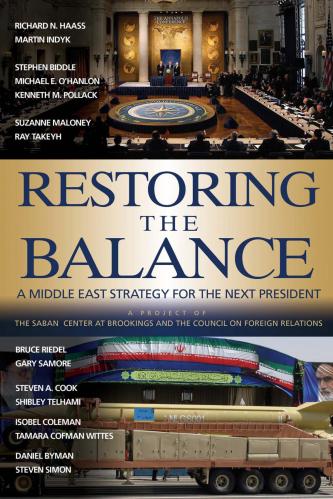

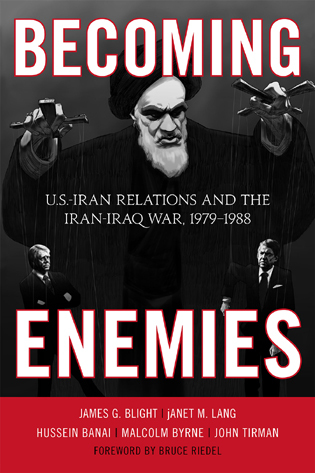
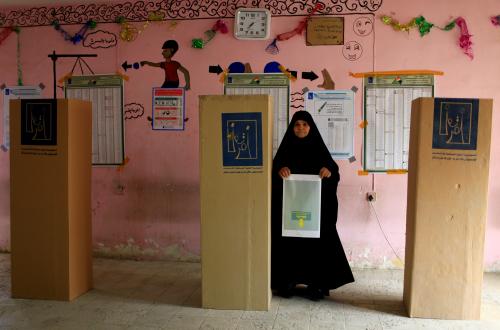


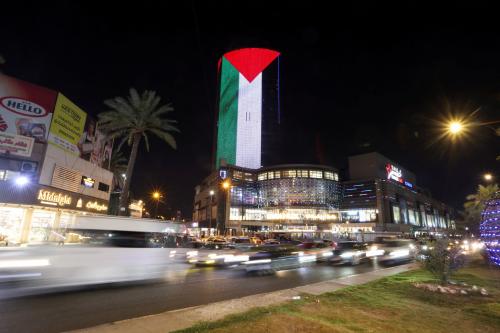
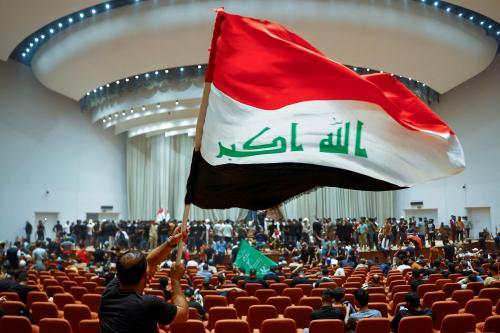
Commentary
What Iraq’s election results mean for U.S. policy there
May 18, 2018